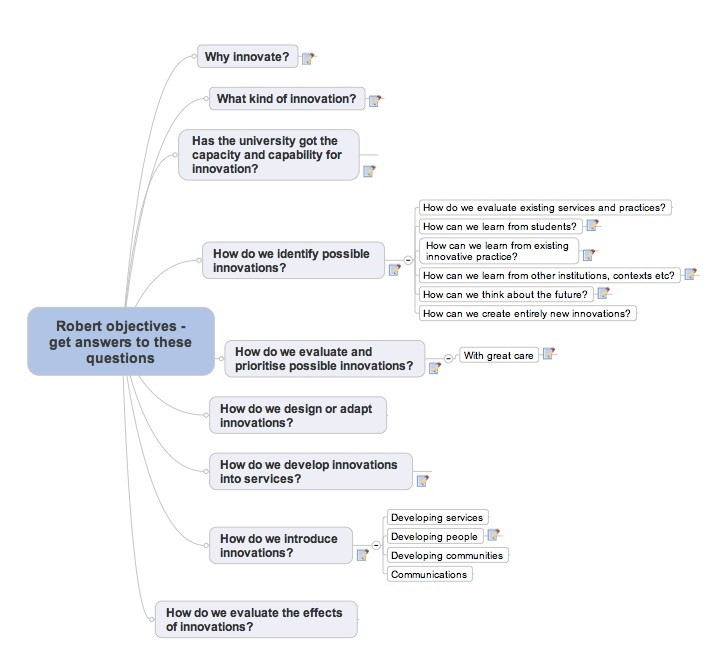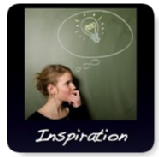All 26 entries tagged Implementation
Real world examples of the implementation of learning designs, spaces and technologies, reported on and reflectively examined.
View all 38 entries tagged Implementation on Warwick Blogs | View entries tagged Implementation at Technorati | There are no images tagged Implementation on this blog
April 15, 2011
My Learning Technology at Warwick objectives April 2011
Following a reorganisation and regrouping at Warwick, I have been asked to identify my next set of objectives for my learning technology work. There is widespread agreement that we need to step back and reconsider our approach to developing a technology enhanced university. This need was explored well in the recent DVC Forum on New Technology with Professor Mark Smith (which I couldn't get to due to a schedule clash with my PhD upgrade meeting). A summary of the forum is online for university members. It is a very useful and thought-provoking podcast.
From the points raised in the forum, combined with my own experience and current thinking, it is clear that now need to get answers to some fundamental questions before proceeding further. I am proposing to undertake a two-month long investigation spanning all aspects of the university, and producing a report with recommendations as to how we should proceed. I have created a mind map of the questions (a snapshot of which is shown below). The Mindmanager version of the map contains notes from a transcript of the DVC Forum.

April 04, 2011
Chapter plan
1. Developing human intelligence through epistemographically1-smart design.
1.1 A vision of meaningful success in higher education.
How knowledge, meaning and experience are intimately linked. A brief social and technical history of higher education and academic knowledge, from 11th Century Bologna through to Boyer and beyond. Capitalism and the hyper-enrichment of experience and opportunity. What might be meaningful success in 21st Century higher education?
1.2 Dewey and the experiential turn in the philosophy of education.
1.3 Kolb's Experiential Learning and the weakness of its constructivism.
1.4 Shifting the perspective to emergent epistemic systems and their instruments of experience.
1.5 Evidence from the study of human and non-human emergent epistemic systems.
1.5.1 Learning from robots: situated, embedded and extended cognition (and why robots don’t do art).
1.5.2 Learning from biology: dynamic, emergent systems and cognition (and why swarms don’t think).
1.5.3 Learning from artists and performers.
1.5.4 Learning from societies: language games, actor-network-theory, reflexivity and cognition (and why humans are creative thinkers).
1.6 Epistemographically-smart instruments of experience.
1.7 Epistemographically-smart teaching and learning.
2. Case studies from arts and humanities higher education.
2.1 A field guide to observing “epistemographically-smart teaching and learning”.
2.2 Why arts and humanities?
2.3 Knowing Shakespeare (English Literature, Theatre Studies).
2.4 Finding your authorial voice (Creative Writing).
2.5 How common is this kind of teaching and learning?
2.6 Design as a methodology for enhancing teaching and learning.
3. Design thinking: developing intelligent products, services and communities.
3.1 What is design? What is design thinking?
3.2 Industrial design, experience design, sustainable and durable design.
3.3 What is meant by “non-trivial” or “wicked” problems.
3.5 The epistemographic dimension of "wicked" problems and solutions.
3.4 IDEO, participatory interaction design and the Three Spaces approach.
4. Examples of synergies between humanities education and design thinking.
4.1 Creative projects in English and Comparative Literary Studies.
4.2 Creative projects in Theatre Studies.
5. Experiments using design thinking in humanities education.
5.1 Design thinking based film making.
5.2 IDEO cards.
6. Conclusion: design thinking – an effective method for epistemographically-smart teaching and learning?
1 Epistemography: a description of what, in a given context, constitutes knowledge, how it is produced, shared and used (as opposed to an epistemology, a description of the necessary logical structure of knowledge).
 Robert O'Toole
Robert O'Toole

 Please wait - comments are loading
Please wait - comments are loading





